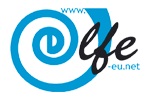ICT in Education

Related topics
Related news
Policy
ICT in education is continuously a topic of high importance for the ETUCE. Education prepares students for lifelong learning in a globalised highly interconnected working world where ICT skills have a major impact. In the past ETUCE has carried out the two projects, ELFE1and ELFE2, which both proved that more has to be done to foster the vision and aspiration to integrate ICT effectively in teaching. In November 2011 ETUCE successfully applied for a new ICT project: 'ELFE-ESL: Teacher Unions preventing early school leaving through the use of ICT in education'.
Projects
ELFE-ESL (2011-2014)
 This ETUCE project, Teacher Unions preventing early school leaving through the use of ICT in education, connected the beneficial effects of the use of ICT in education to the serious issue of early school leaving. Specifically, the project sought to identify how ICT and innovative teaching based on ICT can assist in re-attracting individuals back to school who are at risk of exclusion from formal education. It analysed how teachers can support the potential of ICT to bridge the gap between what these individuals
This ETUCE project, Teacher Unions preventing early school leaving through the use of ICT in education, connected the beneficial effects of the use of ICT in education to the serious issue of early school leaving. Specifically, the project sought to identify how ICT and innovative teaching based on ICT can assist in re-attracting individuals back to school who are at risk of exclusion from formal education. It analysed how teachers can support the potential of ICT to bridge the gap between what these individuals
experience and learn at home and in school. The project took place between 1 January 2011 and 30 April 2014. Within this time frame, four case studies were conducted in teacher education institutions and schools in Denmark, the Netherlands, Portugal and Azerbaijan. In a workshop, practical guidelines on the use of ICT in education to motivate students to school were drafted and were later evaluated at a final conference. The practical guidelines will be presented for adoption to the ETUCE Committee in April 2014.
ELFE 2 (2008-2009)
 This project was created to achieve a better understanding of the strengths and the weaknesses of using ICT in education. Through peer reviewing of previous experiences of pilot projects with intensive use of ICT in secondary schools but also in teacher education institutions -was carried out in five different European countries (Denmark, UK, Latvia, Poland and Slovenia)- the ELFE 2 project tried to:
This project was created to achieve a better understanding of the strengths and the weaknesses of using ICT in education. Through peer reviewing of previous experiences of pilot projects with intensive use of ICT in secondary schools but also in teacher education institutions -was carried out in five different European countries (Denmark, UK, Latvia, Poland and Slovenia)- the ELFE 2 project tried to:
- Identify methodologies used in schools and teacher education institutions in order to favour a use of ICT that promotes the added value of using ICT in education in terms of teaching and learning models (by building on the ELFE 1 findings);
- Develop recommendations addressed to policy-makers, to schools and teacher education institutions and to trade union leaders on the three priority areas identified in ELFE 1 (ICT and teacher education, ICT and school management, ICT and strategic use of available financial means).
ELFE 1 (2004-2005)
 The ELFE 1 project was carried out in Denmark, UK, Norway, Germany and Portugal during the period 2004-05, and tried to create a European eLearning Forum for Education (ELFE) whose main task was to achieve a better understanding of the strengths and the weaknesses of using ICT in primary and secondary education. Through peer reviewing of previous experiences of eLearning pilot projects carried out in five different European countries (Denmark, UK, Germany, Norway and Portugal), the European eLearning Forum was aimed at:
The ELFE 1 project was carried out in Denmark, UK, Norway, Germany and Portugal during the period 2004-05, and tried to create a European eLearning Forum for Education (ELFE) whose main task was to achieve a better understanding of the strengths and the weaknesses of using ICT in primary and secondary education. Through peer reviewing of previous experiences of eLearning pilot projects carried out in five different European countries (Denmark, UK, Germany, Norway and Portugal), the European eLearning Forum was aimed at:
- Analyse and share good experiences and identify good practices in different countries implementing the use of ICTin their education systems;
- Study the possibilities to transfer good practices in the pedagogical use of ICT among all the European countries and the way this transfer could be done, and
- Create a wide debate on how the European Policy on the use of ICT in schools should be - from a pedagogical point of view - taking into consideration the social effects and the political approach to deal with in future education plans.